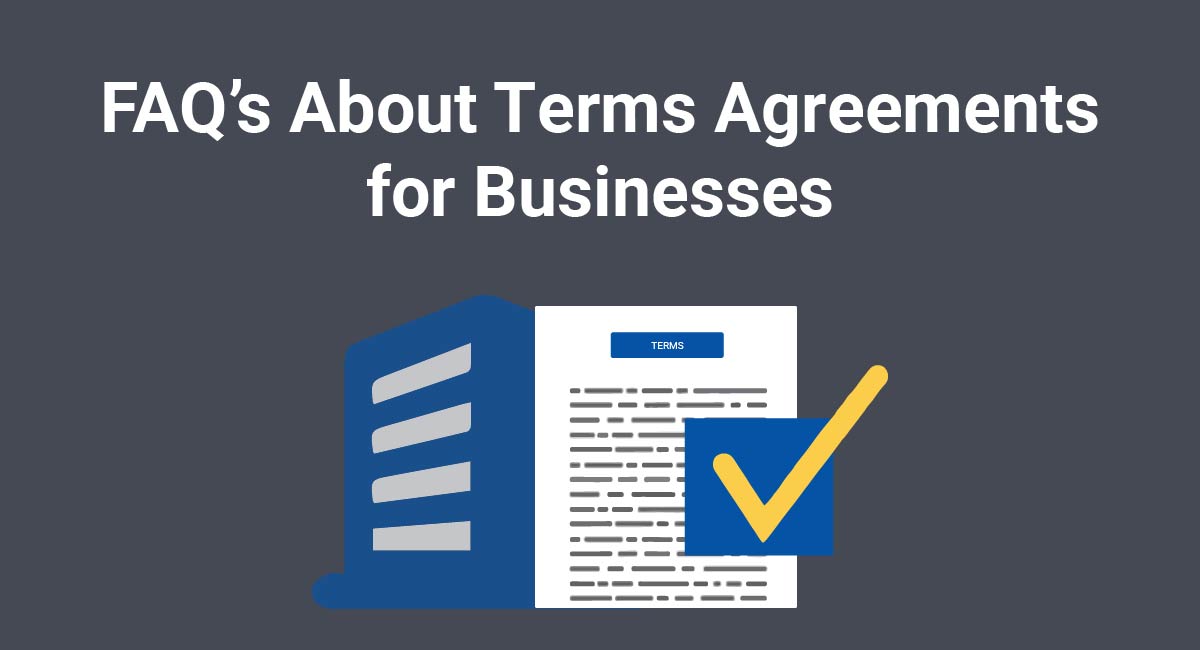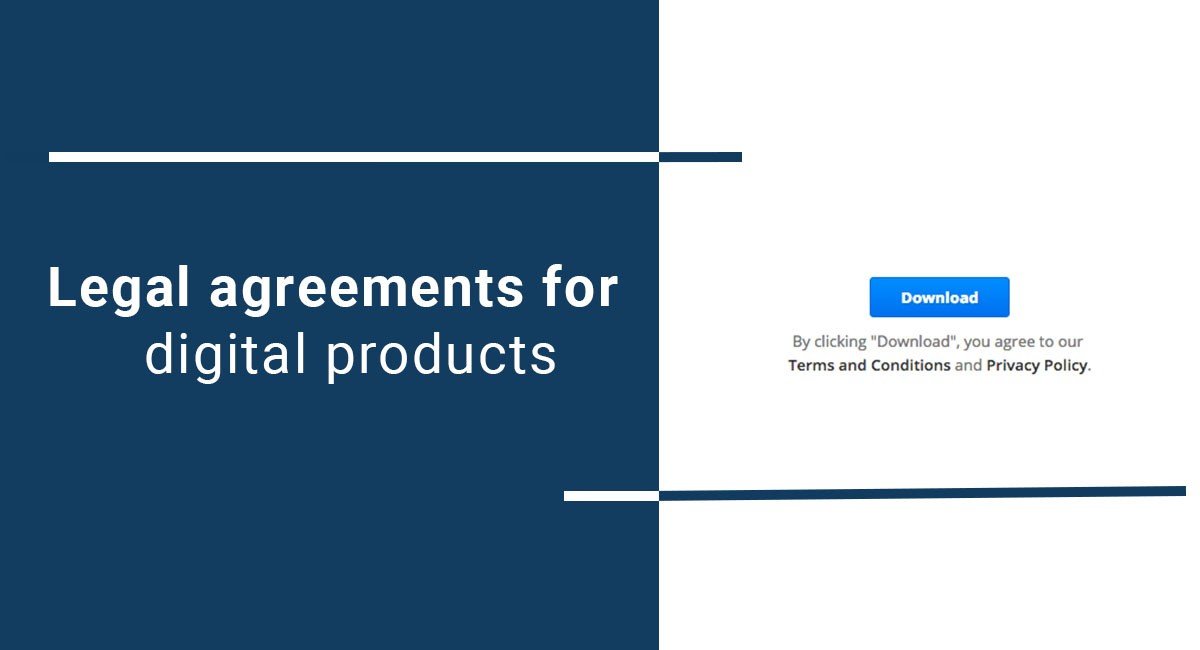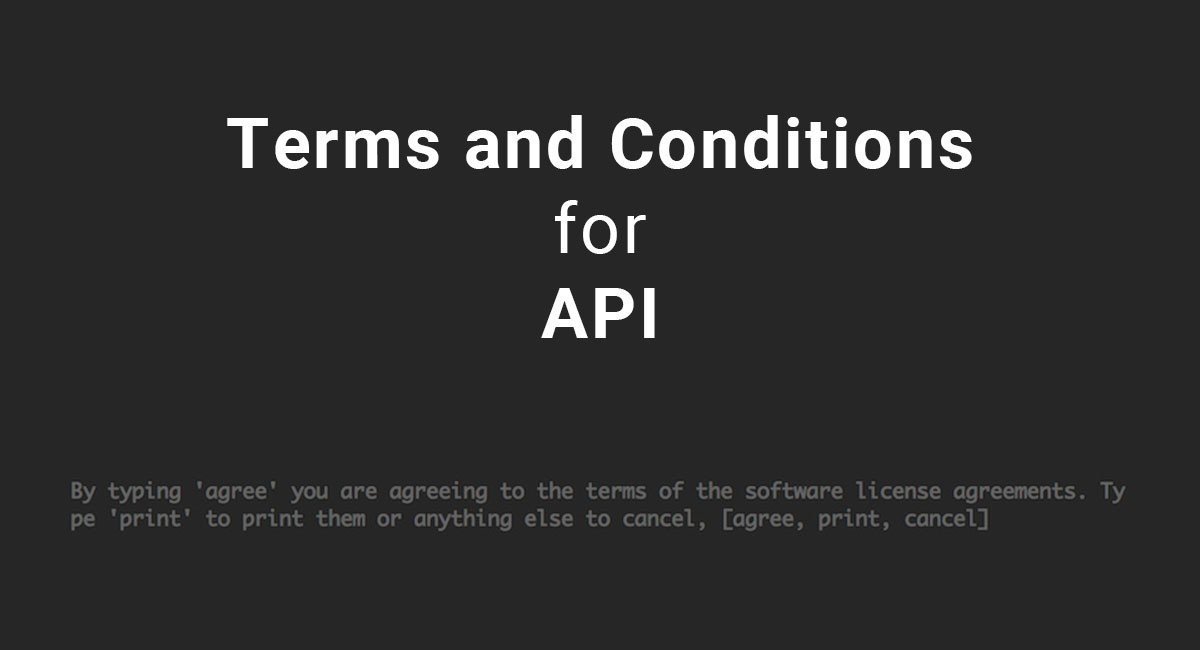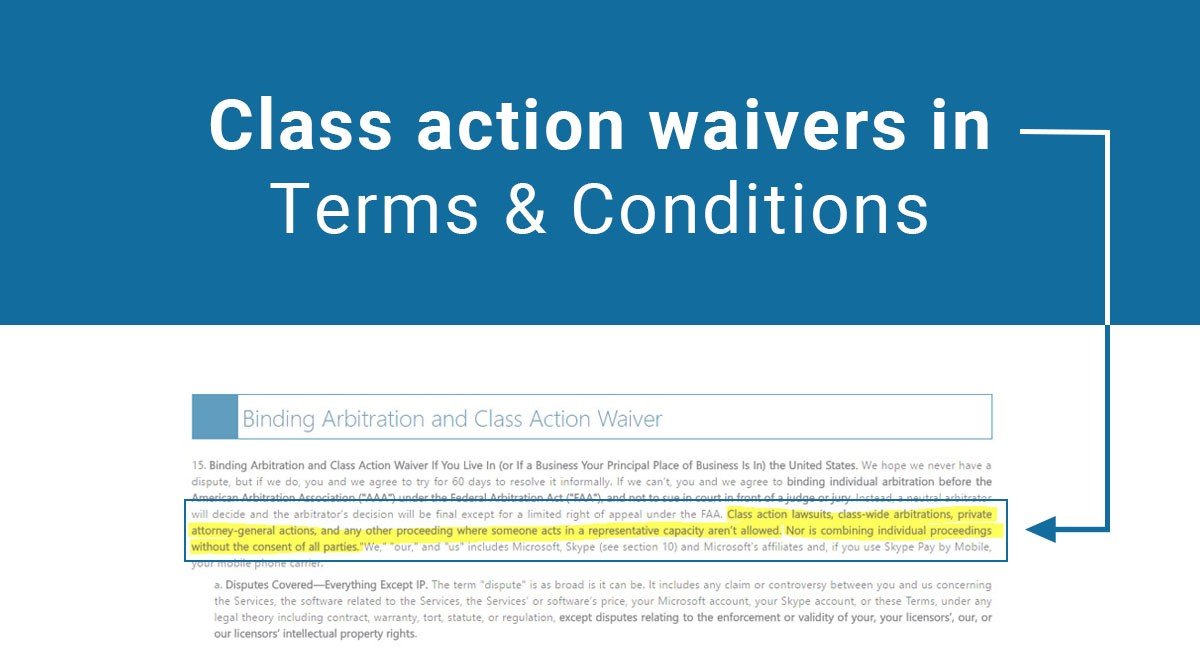In this article, we'll be looking at some common questions relating to Terms and Conditions agreements for businesses. We'll be covering areas such as:
- Some of the terminology used in Terms and Conditions agreements
- Why this agreement could be important for your business
- How to create a Terms and Conditions agreement
- What to include in your Terms and Conditions agreement
- How to make sure your agreement is enforceable
Read the entire FAQ straight through as an informative overview, or skip around in the table of contents to find specific questions you may have and read the answers.
- 1. Are Terms and Conditions, Terms of Service and Terms of Use the same thing?
- 2. What are standard Terms and Conditions?
- 3. Do I need Terms and Conditions?
- 4. Why are Terms and Conditions important?
- 5. Can I use someone else's Terms and Conditions?
- 6. Are Terms and Conditions copyrighted?
- 7. Are Terms and Conditions enforceable?
- 8. What does browsewrap mean?
- 9. Are browsewrap agreements enforceable?
- 10. What is a clickwrap agreement?
- 11. Are clickwrap agreements enforceable?
- 12. Do I need a lawyer to create Terms and Conditions?
- 13. How do you create a Terms and Conditions for your website?
- 14. How to Create a Terms and Conditions for Your Website
- 15. What should I write in my website Terms and Conditions?
Are Terms and Conditions, Terms of Service and Terms of Use the same thing?
Yes, the phrases "Terms and Conditions," "Terms of Service," and "Terms of Use" usually refer to the same thing. Although these phrases might take slightly different meanings in some contexts, they can be used interchangeably for the most part. Sometimes they are just called "Terms."
In this article, we'll mostly be using the phrase "Terms and Conditions."
What are standard Terms and Conditions?
Standard Terms and Conditions are a type of legal agreement. They provide the rules under which a property or service can be used. This might be:
- A piece of software
- A website
- A subscription service
They are "standard" because they are decided by one party to the agreement (the service provider), generally with little scope for negotiation. The terms are the same for everyone by default.
To put this in context, take a look at the very first section of Facebook's Terms of Service:
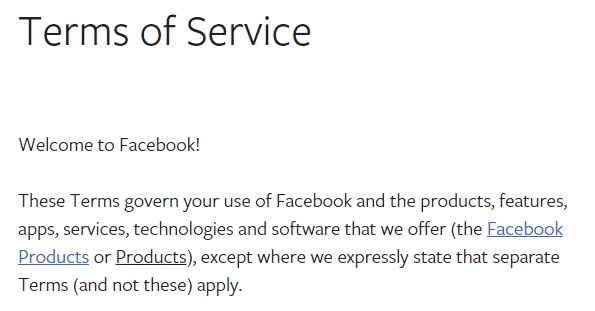
You can see how Facebook states that these Terms apply across the board to its services, technologies, products, software, etc. unless it's expressly stated that separate Terms apply. This shows that this is a standard Terms of Service agreement for Facebook.
Do I need Terms and Conditions?
Although they are very important, technically you don't "need" Terms and Conditions. Unlike a Privacy Policy, Terms and Conditions are not a legal requirement.
However, depending on the nature of your business, Terms and Conditions may effectively be essential. They are extremely important if you want to maintain control over how people use your products or services, and avoid or mitigate the damage of any legal issues.
Why are Terms and Conditions important?
Terms and Conditions are important for several reasons:
- They set out clear rules for your users
- They allow you to enforce those rules
- They can limit your company's liability for any harm it might accidentally cause
If a person misuses your product or fails to pay for your services, you may end up having legal issues. A well-drafted, clear set of Terms and Conditions can take legal effect. This means that a court will enforce the agreement and you will be protected.
For example, if your Terms and Conditions agreement clearly states that your service must not be used for illegal purposes, and a person violates this term, then that person may be required to pay damages to your company.
Or, if your Terms and Conditions agreement states that users must pay for your services, and a person fails to do so, then a court could order the person to pay you. At minimum, you could retain the right to delete the user's account for non-payment.
Ultimately, if the rules and expectations on how to use your services are clear, then people will be more likely to engage with them in the way they are supposed to.
Can I use someone else's Terms and Conditions?

No, you can't use someone else's Terms and Conditions word for word. This would be a bad idea for many reasons. Not least because, under some circumstances, Terms and Conditions that are specific to a company's business may be subject to copyright.
By all means, look at the Terms and Conditions of other companies for inspiration as to how to write your own. For example, many Terms and Conditions agreements contain standard or "boilerplate" terms such as a limitation of liability clause.
But don't copy other agreements. Even terms that appear to be very similar across many different companies will likely be subtly different, or take very different effects, outside of their normal context or legal jurisdiction.
There are simple and cost-effective ways to create a Terms and Conditions. They require some initial investment, but they will pay off in the long term. Using someone else's Terms and Conditions would be very unlikely to work out well for you.
Are Terms and Conditions copyrighted?
Terms and Conditions agreements could be copyrighted in certain circumstances. This is one of many reasons that it's not a good idea to copy them for your own website.
There aren't many cases or statutes which clearly establish that Terms and Conditions are copyrighted. Moreover, the general principles of copyright law are primarily concerned with "creative expression," and so don't obviously apply to Terms and Conditions agreements.
The United States case of AFLAC v Assurant concerned one insurance company copying another's policy. It was found that the unique portions of the plaintiff's policies, which had been created at considerable expense, were subject to copyright.
Whether or not a court ultimately found that you had violated copyright by using another company's terms, it's really not worth risking it. Even an allegation of copyright infringement can be
Are Terms and Conditions enforceable?
Yes, Terms and Conditions are enforceable. Or, more accurately, they can be enforceable under certain conditions.
There are two particularly important factors if you plan on getting your Terms and Conditions agreement to "bind" your users:
- Only including carefully-drafted, clear and reasonable terms
- Ensuring you take all reasonable steps to have your users read and agree to your Terms and Conditions
It is possible to include certain terms in your Terms and Conditions agreement that will not be binding on your users. Certain terms are not enforced by the courts in certain legal jurisdictions. This varies considerably from place to place, and so it's important to get to know how contract law works in the countries in which your business operates.
A good example is "exclusion of liability" clauses. An exclusion of liability clause attempts to absolve one party to a contract of any responsibility to pay damages to the other party. This can be highly problematic if that party has acted negligently and caused harm to the other.
Whilst many companies put exclusion of liability clauses into their contracts, there are laws in some places (including some states in the United States, and most EU countries) that order the courts to ignore such clauses.
Terms that have not been actively agreed to will also rarely be binding. Generally speaking, a particularly onerous term will only be enforced if a significant effort has been made to draw a person's attention to it.
"I didn't know I'd agreed to that" is actually a valid defense in some cases.
If you're expecting your users to pay money for your service, or you're hoping to limit the damages that you will pay to them if something goes wrong, you'll probably need to seek their active agreement to this. You shouldn't rely on their passive agreement or a "browsewrap" arrangement.
What does browsewrap mean?

A browsewrap agreement attempts to make the browsing of a website an implicit agreement with that site's Terms and Conditions.
Usually, this consists of a notice placed somewhere on the site or at the top of the agreement reading something like:
"By using this website you agree to our Terms and Conditions."
If a user continues to browse the website having been notified of the terms, they are deemed by the website owner to have agreed with them.
Here's an example from CFA Institute:
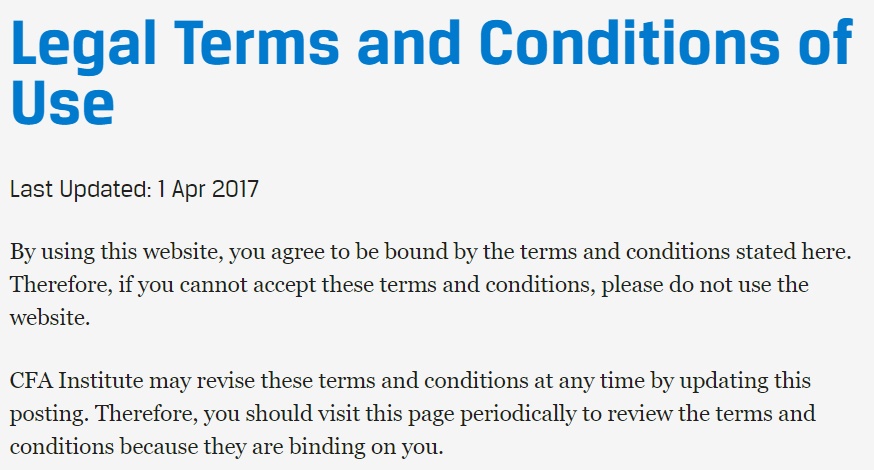
Are browsewrap agreements enforceable?
A browsewrap agreement is not likely to be enforced. This is because browsewrap agreements can lack one of the essential elements of a valid contract - acceptance.
Unless you take reasonable steps to ensure that your users actively agree to your terms, they might be able to argue that they are not bound by them.
A browsewrap agreement was considered in the United States Court of Appeal case, Specht v Netscape. It was held that a "reasonably prudent internet user" would not have been aware of the existence of the plaintiff's Terms and Conditions, and therefore was not bound by them.
There are cases, however, where courts have enforced browsewrap agreements. One of these was a Canadian case of Century 21 Canada v Rogers Communications. The court found that the defendant had agreed to the website's Terms and Conditions because they had been given the opportunity to read them and had continued using the website.
So, there are certain circumstances where browsewrap agreements might be enforced. But they are not a safe or recommended option.
What is a clickwrap agreement?
A clickwrap agreement (sometimes called a "click-through" agreement) is a way to obtain a user's assent to an agreement via an affirmative action such as clicking a box or creating an account.
Clickwrap agreements are typically found at the point of setting up an account or making a purchase. The user cannot take a given action without indicating their willingness to be bound by the company's Terms and Conditions.
Here's an example from Quora:
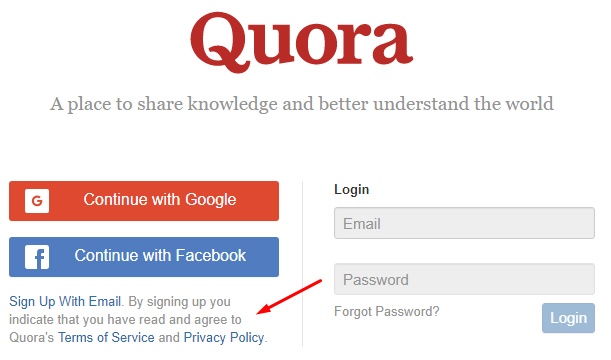
Are clickwrap agreements enforceable?
Clickwrap agreements are generally enforced by the courts. They are certainly much more likely to be enforced than browsewrap agreements.
For example, in the United States case of Forrest v Verizon, it was found that a contract had been formed by "clicking an "Accept" button below [a] scroll box."
It is also fairer on your users to draw their attention to your Terms and Conditions, and encourage them to read the agreement.
Obviously, each case will depend on the facts, and the specific wording of the Terms and Conditions agreement will be considered. But clickwrap is a much safer method than browsewrap to get your Terms and Conditions recognized.
Do I need a lawyer to create Terms and Conditions?

No, you don't necessarily need a lawyer to create Terms and Conditions. There is no requirement that the author of a Terms and Conditions agreement has a license to practice law.
Of course, a lawyer may be able to help you create a Terms and Conditions agreement which is more likely to be enforced by a court. Although a lawyer's services are typically expensive, this may save you money in the long-run.
But the qualifications of the author of a Terms and Conditions agreement isn't ultimately the most important thing. What's important is that the agreement is reasonable, that it's clear, and that your users are actively agreeing to be bound by it.
How do you create a Terms and Conditions for your website?
To create a Terms and Conditions for your website, you have several options. You can:
- Try to write your own
- Use a customizable legal agreement/policy generator
- Hire a lawyer
These options vary considerably in terms of cost and reliability.
Before engaging any three of these options, you should consider why you need a Terms and Conditions agreement. You may wish to achieve some of the following things:
- Set the rules around comments or user-generated content on your website
- Warn that software or files that you host on your website are downloaded at the user's own risk
- Disclaim liability for content on external sites that your website links to
A website Terms and Conditions agreement can help you with all of these things and more.
How to Create a Terms and Conditions for Your Website

- Click on the "Start the Terms and Conditions Generator" button.
- At Step 1, select the Website option and click "Next step":
- Answer the questions about your website and click "Next step" when finished:
- Answer the questions about your business practices and click "Next step" when finished:
- Enter your email address where you'd like your agreement sent and click "Generate My Terms and Conditions." You'll be able to instantly access and download your new agreement:
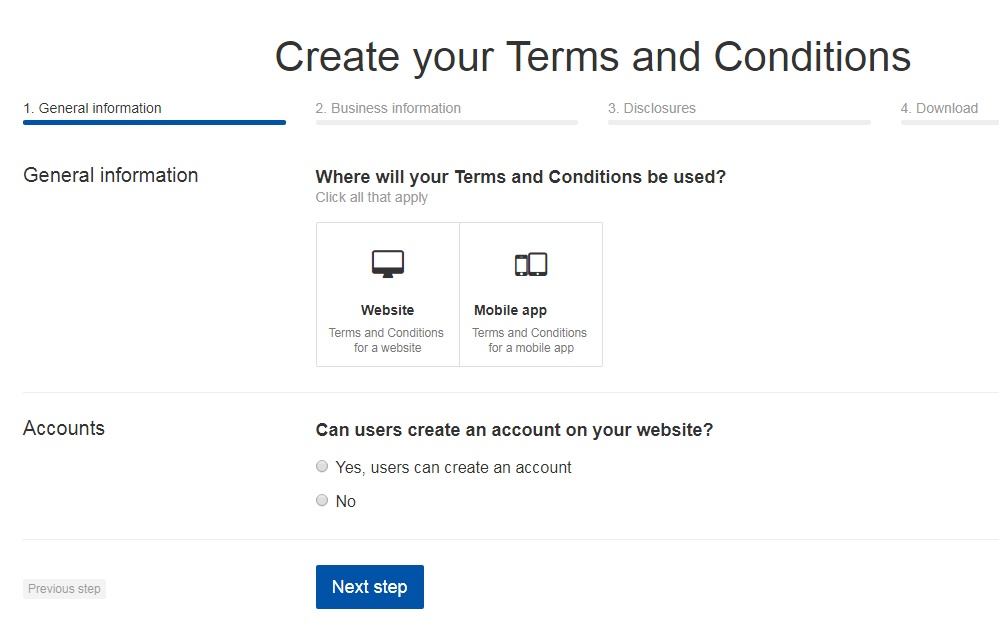
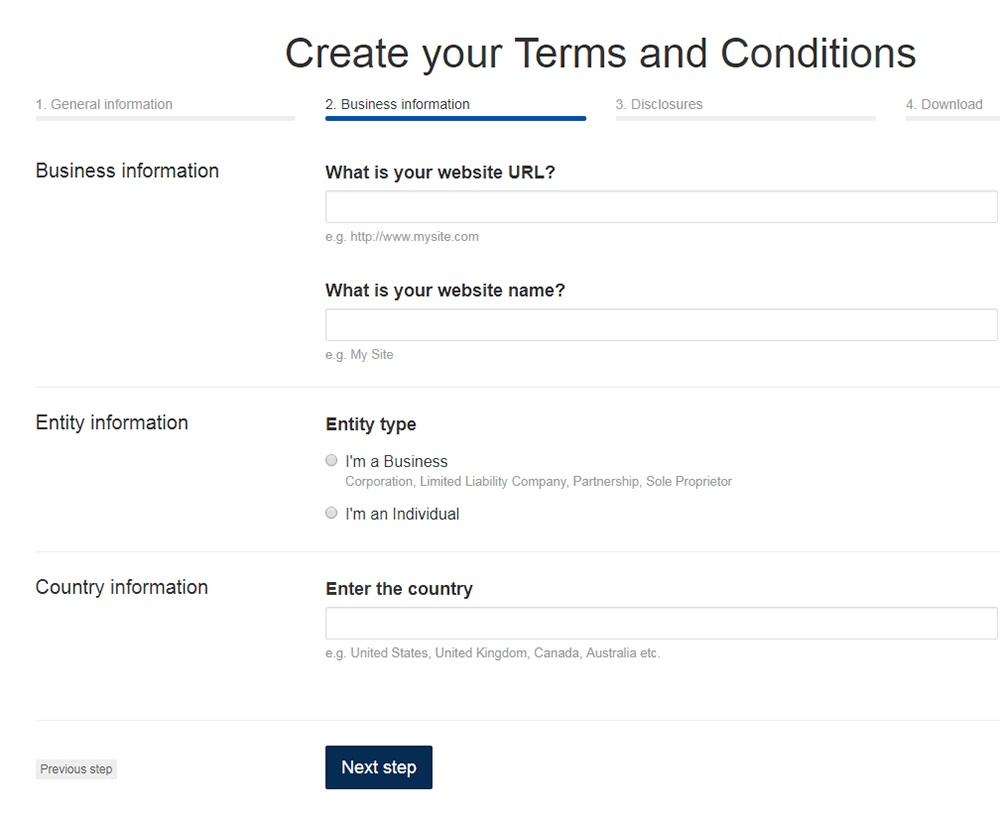
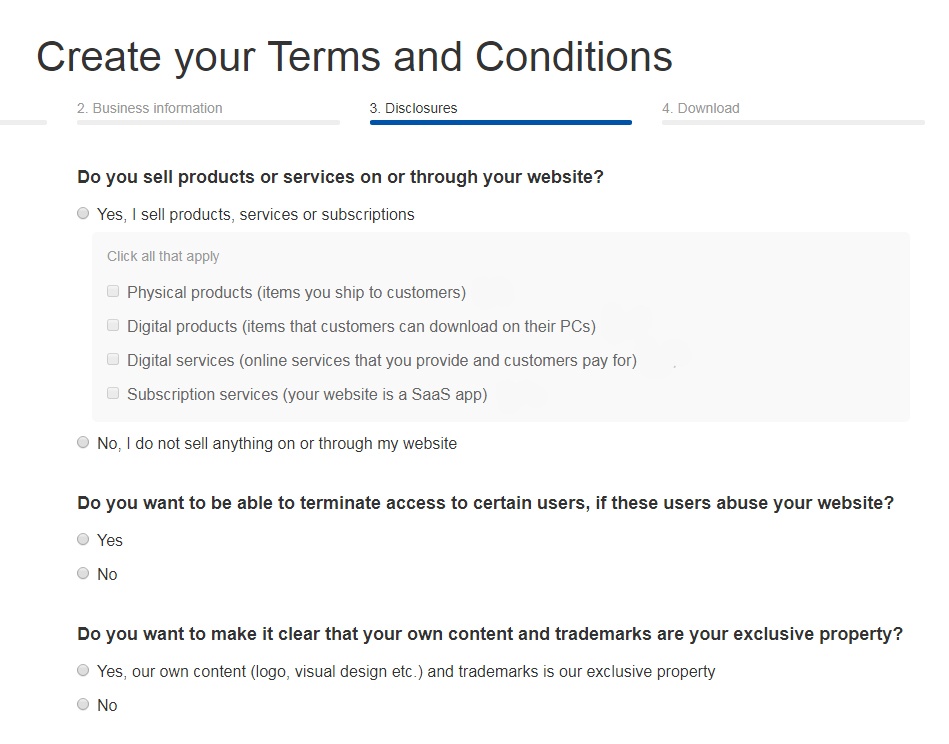
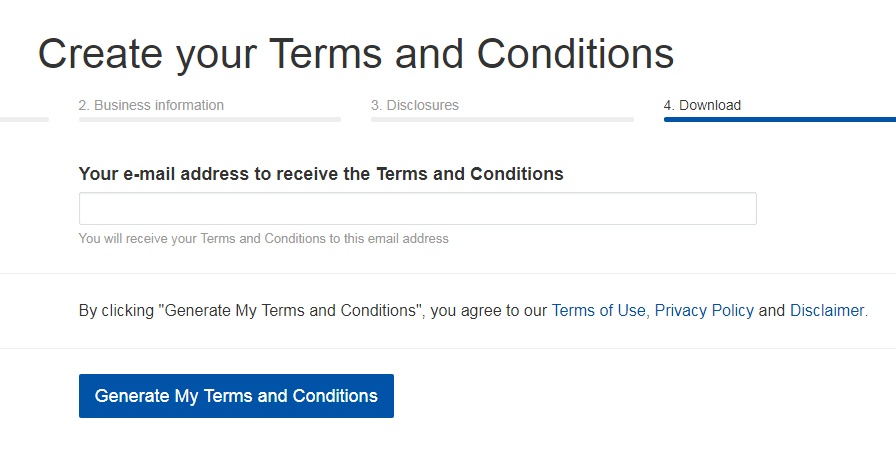
What should I write in my website Terms and Conditions?
Obviously, each website Terms and Conditions agreement should be unique to the website that it relates to.
However, there are certain sections that are common to many such agreements. These include:
- Introduction
- Definitions
- Restricted behaviors/uses
- Limitation of liability
- Termination or restriction of service
- Governing law/ jurisdiction
- Information about changes to the agreement
Some industries have common sector-specific terms. For example, an ecommerce store will usually set out its Returns and Refunds Policy within its terms (possibly as a separate, incorporated agreement, but summarized in the Terms and Conditions).
As mentioned, most website Terms and Conditions agreements begin with an introduction which provides the name of the company, company information and the purpose of the agreement. Here's how HSBC introduces its website Terms and Conditions agreement:
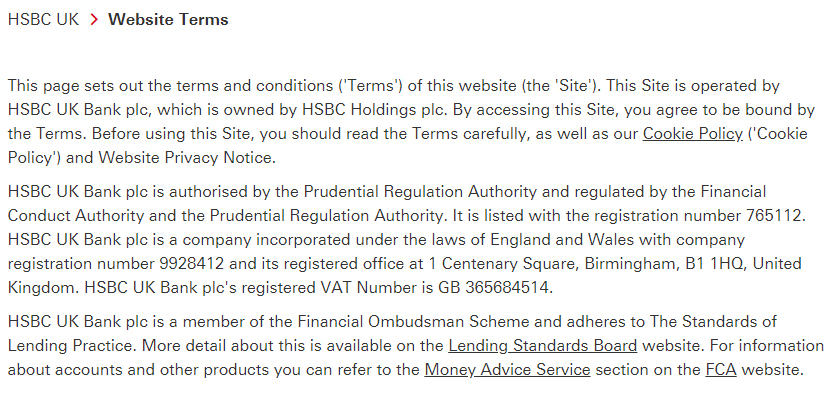
Another clause often spotted in a website Terms and Conditions agreement is a disclaimer relating to external links to other websites. This attempts to exclude liability for any harm caused by the content of those websites.
Here's an example from Hastings Direct:
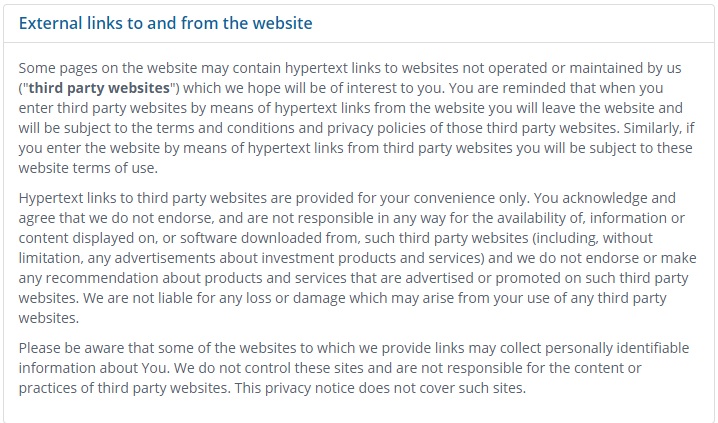
A termination clause is also a common feature of many website Terms and Conditions agreements. This sets out the reasons for which the website operator might restrict or deny access to the website.
Here's an example of a termination clause from Brittany Ferries:


Comprehensive compliance starts with a Privacy Policy.
Comply with the law with our agreements, policies, and consent banners. Everything is included.
